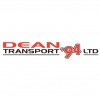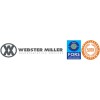
Established in 1993, Foley and Miles has a reputation for providing an efficient and reliable service with outstanding customer care. Whether you ask for one load; engage us in multi vehicle long term supply contracts, or use any of our other services; we will deliver exactly what you need, when you need it. We take your problem loads as a challenge and always find a solution that is cost and time effective. With our head office in Purfleet Essex we are situated in a prime location for London and the Home Counties.
Services
Established in 1993, Foley and Miles have a reputation for providing an efficient and reliable service with outstanding customer care. Historically our specialist service has been providing brick and block haulage solutions within London and the Home Counties. With over 60 vehicles on our fleet, ranging from Rigids, Drawbars and Artics, we are also geared up to service our customer requirements up and down the UK.
Here at Foley & Miles, we pride ourselves on providing great customer service. We appreciate that not every load or requirement is straight forward. Our team is geared up and ready to deal with many different types of transport challenges. Our drivers are trained to a very high standard and many are experienced in all aspects of crane transport.
We're proud to announce that Foley and Miles has achieved the Silver standard with renowned voluntary accreditation authority, the Fleet Operator Recognition Scheme. On the face of it, nothing has changed - we're still delivering the reliable, efficient haulage services you've come to expect from us.
Following this date, all professional LGV drivers must complete 35hours Periodic Training every 5 years to maintain their Driver Qualification Card (DQC). As members of Drivers CPC4U Consortium we offer LGV training packagesin 3 hour modules, which can be mixed and matched to produce a 7 hour course.
We are always looking for back load opportunities, this enables us to maximize the use of spare capacity on the return leg of a journey. It makes more efficient use of valuable resources, such as fuel and driver time, by finding loads that need to be shipped between similar areas as those visited by the returning vehicle.


